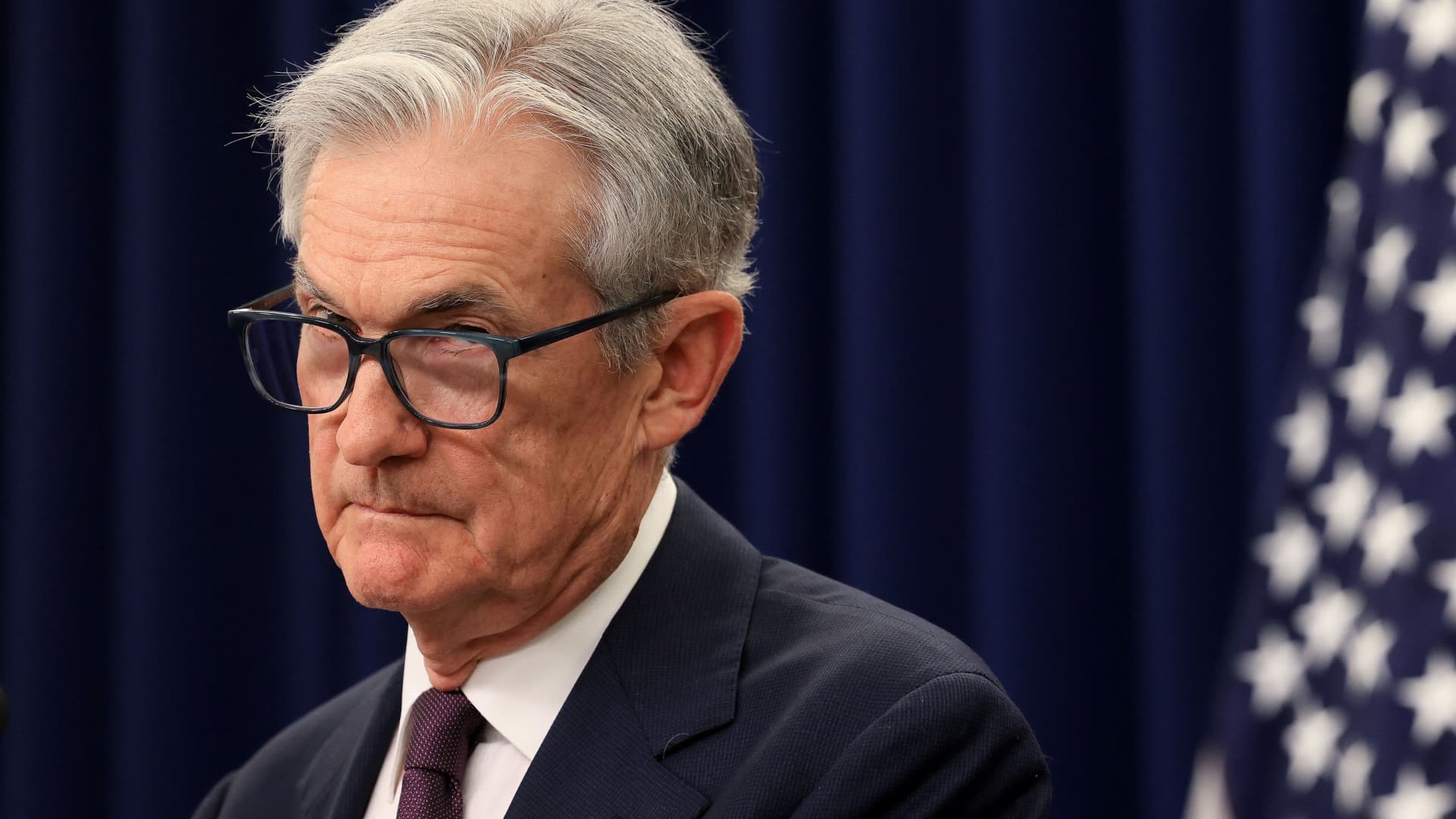The Unyielding Clash: Trump’s Enduring Criticism of Jerome Powell and the Federal Reserve
The public feud between former President Donald Trump and Federal Reserve Chair Jerome Powell has become a defining feature of Trump’s post-presidency, marked by a relentless stream of criticism that transcends mere policy disagreements. This persistent conflict, fueled by Trump’s recent outbursts following the Fed’s decision to hold interest rates steady, reveals a fundamental clash in economic philosophies and a unique approach to the independence of the central bank. Trump’s attacks represent a sustained effort to influence, and arguably control, monetary policy for perceived political gain, raising critical questions about the future of the Federal Reserve’s independence.
A History of Dissent: From Praise to Personal Attacks
Trump’s dissatisfaction with Powell began shortly after his appointment in 2018. Initially, Trump praised Powell, but the tone quickly shifted as the Fed began raising interest rates. Trump’s criticism escalated from characterizing Powell as “Mr. Too-Late” to launching increasingly personal attacks, labeling Powell a “dummy,” a “fool,” and even “stupid.” These derogatory terms, repeatedly documented across various news outlets, underscore the intensity of Trump’s animosity. The core of Trump’s complaint consistently revolves around interest rates, which he believes should be lower to stimulate economic growth and bolster his political standing. This perspective overlooks the complexities of monetary policy and the Fed’s mandate to maintain price stability and full employment, often requiring a nuanced approach that doesn’t align with short-term political objectives.
The Latest Outburst: A Pattern of Pressure
The most recent wave of criticism followed the Federal Reserve’s decision to hold interest rates steady for the fourth consecutive time. This decision, while anticipated by many economists, triggered a fresh barrage of attacks from Trump. He claimed the Fed’s inaction was costing the United States “hundreds of billions of dollars” and reiterated his belief that Powell is “destructive” and lacks competence. Notably, Trump didn’t stop at mere criticism. He once again floated the idea of appointing himself as Fed chair, suggesting he would do a “much better job.” This assertion, while seemingly outlandish, highlights his conviction that he possesses superior economic understanding and his willingness to disregard the established norms of central bank independence. His claim that “we have no inflation, we have only success” directly contradicts economic data and demonstrates a disconnect from reality, further fueling his attacks on Powell’s judgment.
The Fed’s Defiance: Maintaining Independence
Despite the relentless pressure, the Federal Reserve, under Powell’s leadership, has largely maintained its independence. Powell has consistently emphasized the importance of the Fed’s non-political role, stating the central bank will focus on its dual mandate of price stability and maximum employment, regardless of external pressures. The Fed’s decision to hold rates steady, despite Trump’s vocal opposition, is a clear demonstration of this commitment to independence. Furthermore, Powell has even cited the impact of Trump’s own policies, specifically his tariffs, as factors influencing the economic outlook and informing the Fed’s decisions. This subtle pushback underscores the Fed’s willingness to acknowledge the broader economic context, even when it involves criticism of the former president’s actions. The projected path of two rate cuts in 2025, despite the pressure for immediate action, further solidifies this independent stance.
The Implications of a Politicized Federal Reserve
Trump’s ongoing attacks on Powell and the Federal Reserve raise serious concerns about the potential for politicizing monetary policy. A central bank that is subject to political interference risks losing credibility and effectiveness. Investors and markets rely on the Fed’s independence to make informed decisions, and any perception of political influence could undermine confidence in the U.S. economy. The historical precedent is clear: a stable and independent central bank is crucial for long-term economic health. Trump’s attempts to exert control over the Fed represent a departure from this established norm and could have lasting consequences. The fact that Trump continues to revisit this issue, even after leaving office, suggests it remains a significant point of contention and a potential threat to the Fed’s autonomy.
The Shadow of Politicization: Future Challenges
The dynamic between Trump and Powell serves as a stark reminder of the fragility of central bank independence. While the Fed has thus far resisted direct political interference, the constant barrage of criticism creates a challenging environment and could potentially erode public trust. The situation highlights the need for a broader conversation about the importance of insulating monetary policy from short-term political considerations. Ultimately, the future of the Federal Reserve’s independence may depend on its ability to maintain its credibility and demonstrate its commitment to its dual mandate, even in the face of sustained political pressure. The recurring nature of Trump’s attacks suggests this will be an ongoing challenge, requiring vigilance and a steadfast commitment to the principles of sound monetary policy.
Conclusion: The Enduring Battle for Independence
The clash between Trump and Powell is more than just a political spat; it is a battle for the soul of the Federal Reserve and the principles of economic independence. As the Fed navigates this challenging landscape, it must remain steadfast in its commitment to its dual mandate, ensuring that monetary policy serves the long-term interests of the economy rather than the short-term political gains of any single administration. The enduring battle for the Fed’s independence is a reminder that the integrity of our economic institutions is a fragile but essential component of a stable and prosperous society. The future of the Federal Reserve’s independence hangs in the balance, and the stakes are high. The Fed must continue to defend its autonomy, ensuring that monetary policy remains a beacon of stability and credibility in an ever-changing political landscape.

